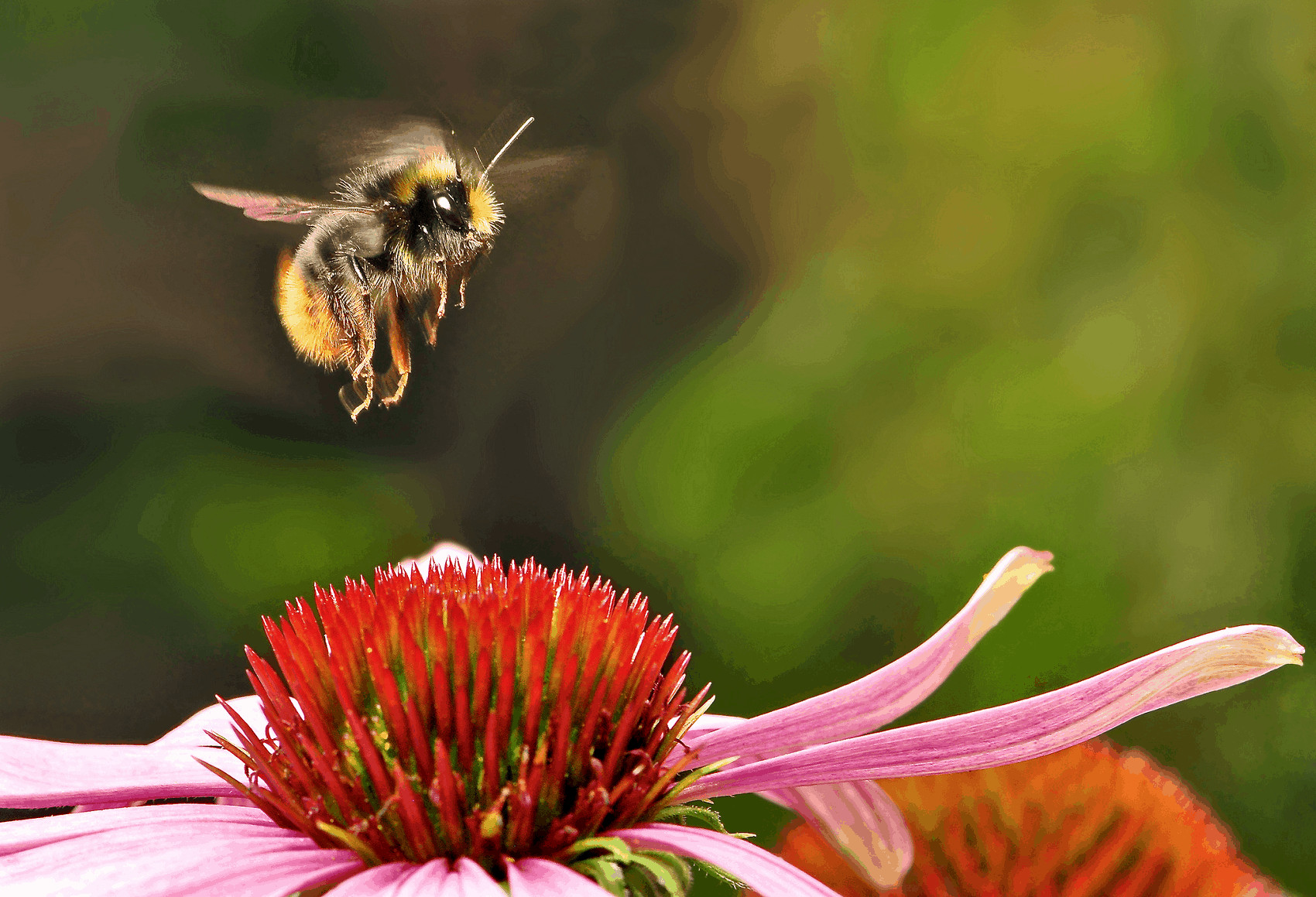Climate change is making some pretty strange things happen in the world. It’s able to alter the behavior of tiny marine organisms, change the circulation of the oceans and even prompt walruses to huddle en masse on the Alaskan shore. But one of the weirder effects of global warming may be happening inside the mouths of one of our most beloved insects: the bumblebee.
In a new paper published Thursday in the journal Science, researchers suggest that the effects of climate change are causing some bumblebees’ tongues – yes, their tongues – to shrink. In fact, they found that tongues on two alpine species of bumblebees in the Rocky Mountains have shrunk by nearly 25 percent in approximately 40 years. And it might sound bizarre, but this tongue-shrinking could actually have big implications for both the bees and the flowers they pollinate.
Tongue size is important in bees because it controls which flowers they can visit for nectar. Bees with longer tongues are able to collect nectar from flowers with longer corollas (that’s the tube shape a flower’s petals form, protecting the tasty nectar inside).
Bees with more medium-length tongues tend to pollinate many different species of flowers. But bees with long tongues are often considered specialists, meaning they only pollinate flowers with deep corolla tubes – and this can be a beneficial arrangement for both the bee and the plant. The bee gets to collect nectar from flowers that insects with shorter tongues can’t access, meaning it has less competition for food. And the flower is pollinated by bees that are only visiting other flowers of the same type, meaning there’s a better chance its pollen is getting transferred to the correct species.
This tactic works best when food is abundant. But the researchers on this study found that rising temperatures are causing flowers (of all sizes) to decline in the mountains, putting more stress on the bees when it comes to finding food.
With fewer flowers to choose from overall, it makes less sense to be so specialized, says Nicole Miller-Struttmann, lead author of the new study and an assistant professor of biological sciences at SUNY College at Old Westbury. She and her colleagues believe the bees’ tongues are shrinking to allow them to be more generalized when it comes to the flowers they visit, giving them a wider range of food sources to choose from.
The study is “a beautiful piece of work that shows the first incidence of climate affecting an important functional trait in the bees,” said Sydney Cameron, a professor of entomology at the University of Illinois at Urbana-Champaign, who was not involved with the study.
Read more climate change coverage here
© 2015, The Washington Post






